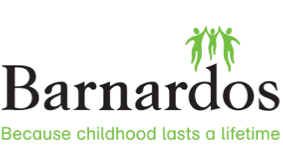Parenting Courses
Barnardos national database of parenting courses provides information for parents hoping to attend a parenting course in their own area. The database includes the details of parenting courses that are organised and delivered on a scheduled basis and parenting courses that are delivered by request. The database can be searched by location, by theme and to who the programme is targeted.
If you deliver parenting courses and would like the details of the courses you provide to be included in the future, please email [email protected] for further details.
Disclaimer
This database is maintained by Barnardos Library & Information Service for information purposes only. Inclusion of an organisation’s details in the database, does not constitute or imply an endorsement or recommendation by Barnardos. While every care has been taken to ensure the accuracy of the information provided, no liability is accepted by Barnardos for any errors. These courses are provided by private providers and owing to this, a cost will be incurred for course participation. Inclusion of an organisation’s details in the database, does not constitute or imply an endorsement or recommendation by Barnardos.
Search for a Parenting Course
Deirdre Holland Hannon Parenting Course
Organisation: Deirdre Holland Hannon Parent Support Contact name(s): Deirdre Holland Hannon Address: Coolanoran Newcastle West, Co. Limerick V42PP94 Telephone: n/a Mobile: 0863688333 Email: [email protected] Website: www.deirdrehollandhannon.com Programme Details Target audience: Parents of children between 4 years to early teens. Theme/subject matter: Bed Wetting and Night Dryness Method of delivery: Online Parent Support Workshop Programme aims:
Emotion Skills Ireland Parenting Course
Organisation: Emotion Skills Ireland Contact name(s): Orla McLoughlin/Dr Ciara Joyce Address: 13 Adelaide Road, Dublin 2, D02 P950 Telephone: n/a Mobile: 0892051369 Email: [email protected] Website: www.emotionskillsireland.com Programme Details Target audience: Parents of infant, school-age, adolescent and adult children Theme/subject matter: This programme uses an evidence-based model of Emotion Focused Skills Training to empower parents in
Parenting Coaching: One-to-One
Contact Details Organisation: Bianca Nidumukkala Parent Coaching Contact name(s): Bianca Nidumukkala Address: Clonskeagh, Dublin 14 Telephone: 083 803 0965 Mobile: 083 803 0965 Email: [email protected] Website: www.biancanidumukkala.com Programme Details Target audience: Parents in general Theme/subject matter: Parent Coaching Method of delivery: One-to-One Private Sessions online and in person in a therapy centre in Dublin 2
Parent Groups for Parents of Children Developing Differently
Parents have considerable expertise and knowledge about their child’s strengths and needs. Partnering with other parents, they can share this expertise and learn more about what might add to their family’s life and experiences.
Systemic Parent Coaching for Separated Parents
Identifying effective pathways for co-parenting in the wake of family separation. It aims to facilitate parents in understanding the impact of family separation on children and how to address co-parenting needs particularly where conflict remains.
Irish Association of Relationship Mentors (various)
To support parents in their everyday parenting challenges. Parenting courses provide an opportunity to reflect, and an invitation to explore new ways of parenting in a safe, non-judgemental space. The courses encourage ways to create a calm & peaceful home environment where relationships flourish.
HSE Sligo Leitrim – multiple courses
Three courses offered: Power of positive parenting, Raising resilient children, Raising confident children, in Sligo town, Carrick on Shannon and Ballymote.
Culturally Information Programme on Children’s Rights & Policies
Facilitated group-based information sharing and discussion sessions on parenting in different cultural contexts.
Family Communications – Quarryvale Family Resource Centre
Support parents to resolve conflict, improve family communication practicing clear and direct communication.
1:1 parent mentoring
Through my 1 :1 parent mentoring and group courses, I support and empower parents in finding their own solutions to life challenges. During the 1: 1 mentoring and courses, parents have the time to reflect and discuss issues that are arising for them and leave with a greater understanding of their own and their child’s behaviours and the reasons behind them and how to respond in more open and supportive ways.
